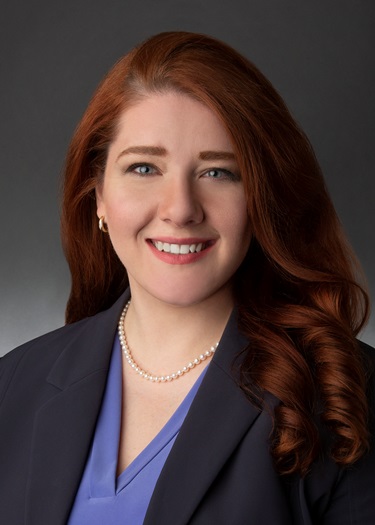We recently discussed ACA International v. FCC. The part of the decision attracting the most attention addresses what sorts of devices qualify as an “automatic telephone dialing system” (autodialer) under the statute. A 2015 FCC ruling had defined this term broadly, appearing to sweep in everyday smartphones. The D.C. Circuit rejected the “eye-popping sweep” of this interpretation. The court went on to vacate the FCC’s approach to handling reassigned phone numbers; it affirmed the agency’s framework for recipients who revoke their consent to be called; and it offered some guidance on a couple of other TCPA questions.
Within weeks of the decision, industry groups were petitioning the FCC to weigh in on whether the agency would clarify its rules. The FCC took up the offer and then some — its notice requests comments on several issues implicated by the D.C. Circuit opinion, plus a few more TCPA topics.
At the top of the FCC’s list is the autodialer question. The TCPA defines an autodialer as equipment that has the “capacity” to make calls using a “random or sequential number generator.” The D.C. Circuit made clear that the FCC has been interpreting this language too broadly. So the agency now seeks extensive input on this issue:
- How much human intervention should be required to convert a device into an autodialer? Is flipping a switch enough? Loading some software? Should certain devices be excluded?
- How “automatic” must an automatic dialer be? Does any human intervention bring a device outside of the statute’s ambit?
- Must an autodialer be capable of dialing numbers in a “short” period of time (and if so, how short)?
- The D.C. Circuit held that the FCC had confusingly suggested both that an autodialer must have the ability to generate phone numbers using a random or sequential generator and that this capability is not required. The FCC asks, “Which is it?”
- Should the TCPA’s prohibitions apply only to devices that actually use their autodialer functionality to make calls? If so, merely having the “capacity” to be an autodialer would not be enough to trigger liability under the statute.
Picking up on the ACA International decision, courts are applying the standard in more reasonable ways, such as a recent case in the U.S. District Court for the District of Arizona that found that a texting platform was not an autodialer because it required users to provide the list of phone numbers, select the numbers to text and manually determine when to send the text. The court found such facts precluded a finding that the platform was a “random or sequential number generator.” Herrick v. GoDaddy.com LLC, no. 2:16-cv-00254 (D. Ariz. May 14, 2018).
The FCC next seeks comments about how to handle situations where a caller believes in good faith that it has “prior express consent” from the recipient but — unbeknownst to the caller — the phone number has been reassigned to someone new. The D.C. Circuit rejected the FCC’s prior approach, which required a caller to obtain consent from the current subscriber in all cases. The FCC has been thinking hard about this issue lately: In March it issued a notice of proposed rulemaking relating to reassigned phone numbers, considering, among other things, a national database to keep track of number reassignments.
Next, the FCC is attempting to untangle the D.C. Circuit’s discussion of opt-outs. The court signaled that “a party may revoke her consent through any reasonable means,” which incentivizes callers to develop “clearly-defined and easy-to-use opt-out methods.” The FCC is trying to figure out what sort of opt-outs might be “clearly-defined” and “easy-to-use.”
The FCC also seeks commentary about how government contractors fit in with the TCPA. The FCC’s 2016 Broadnet Declaratory Ruling explained that the federal government and its agents are not “persons” governed by the statute. Recent petitions ask the FCC to reconsider that position. The FCC asks for comments on this point as well as whether state and local government agents should be treated differently than federal ones. The agency also seeks insight into the interplay between the Broadnet Ruling and the 2015 TCPA Amendment that removed a prior express consent requirement for autodialed calls “made solely to collect a debt owed to or guaranteed by the United States.”
Finally, comments are invited on a pending motion to reconsider the FCC’s 2016 federal debt collection rules because the petition raises some questions about reassigned numbers that are arguably affected by the ACA International decision.
After the comment period closes comes the interesting part: Will the FCC issue a notice of proposed rulemaking? Or will it merely issue a declaratory order clarifying things? The D.C. Circuit gave some guidance about how to approach these issues, but the FCC still has a lot of discretion to fashion its regulations.
Attorney Advertising—Sidley Austin LLP is a global law firm. Our addresses and contact information can be found at www.sidley.com/en/locations/offices.
Sidley provides this information as a service to clients and other friends for educational purposes only. It should not be construed or relied on as legal advice or to create a lawyer-client relationship. Readers should not act upon this information without seeking advice from professional advisers. Sidley and Sidley Austin refer to Sidley Austin LLP and affiliated partnerships as explained at www.sidley.com/disclaimer.
© Sidley Austin LLP


